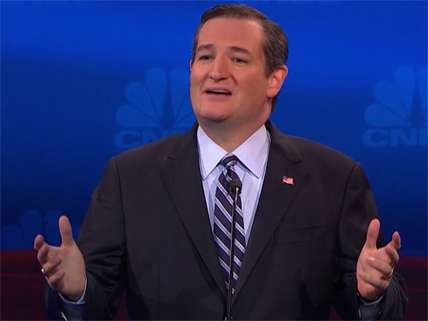Super Saturday Primary Updates
Is the GOP on the way to a brokered convention?

UPDATE (10:56 p.m.): Trump will almost certainly in in Kentucky as well, picking up 13 of the state's delegates.
UPDATE (10:37 p.m.): Cruz is surging in Louisiana, and is now within about four points of Trump. Trump may well still pull out a win, but it will be a lot closer than expected. Cruz's surge appears to come from voters who voted at the polls today, while Trump's early big lead came from voters who cast their votes earlier, suggesting that, in a bastion of Trump support, voters recently turned away from Trump and towards Cruz.
UPDATE (9:09 p.m.): Looks like Trump will win by a big margin in the Louisiana primary, as expected.
UPDATE (8:53 p.m.): Ted Cruz just won the Maine caucus too, taking 12 of the state's 23 delegates. Donald Trump came in second, winning nine delegates, followed by Ohio governor John Kasich, who won two elegates, and Marco Rubio in last place, taking no delegates.
*
Ted Cruz is the first winner in today's presidential voting: The Texas senator is projected to win the Republican party's presidential caucus in Kansas today. And it looks like he'll win in a landslide.
With a little more than 60 percent of the vote counted, he currently has more than 51 percent of the vote so far, with his nearest competitor, Donald Trump, trailing far behind with just 24 percent of the vote.
Cruz's victory margin is bigger than some expected, but it's not that surprising given the heavy evangelical population in the state, which gave Rick Santorum a win in 2012.
This is Cruz's fifth state win so far: He previously topped primary contests in Iowa, Oklahoma, Alaska, and his home state of Texas. Overall, Cruz has garnered 248 electoral delegates, putting him second in delegate count behind Donald Trump's 335. A candidate needs 1,237 delegates to win the nomination outright.
But going forward, Cruz may have a tougher time scoring victories, because the state contest that remain aren't nearly as favorable to his campaign.
Still, it's clear that Cruz aims to stay competitive: At the Conservative Political Action Conference outside of Washington, D.C., yesterday, he said he opposed a brokered convention, saying that it would lead to a "voter revolt."
He also announced this week that he's opening 10 campaign offices in Florida, a state where Marco Rubio, who currently trails Donald Trump, has pinned his hopes on winning. The goal is to knock Rubio out of the race, but the complex delegate dynamics mean that overall effect of Cruz's decision to fight in the state may be to either pave the way for Donald Trump to win outright, or to push the party into the brokered convention that Cruz says he hopes to avoid.


Show Comments (218)